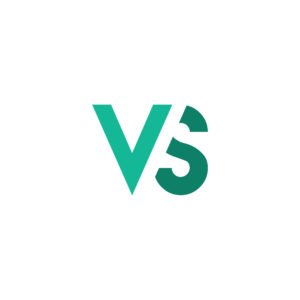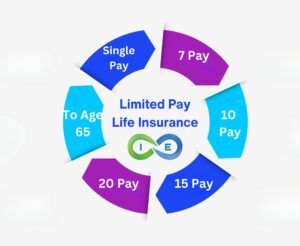About Trinity Life
Trinity Life Insurance Company is a relatively small, Oklahoma-based insurer held by First Trinity Financial Corporation. Trinity Life and its subsidiary, Family Benefit Life, issue policies in 27 states, primarily in the southeastern and central regions of the U.S.
Though currently smaller than many life insurers, Trinity Life emphasizes on its website that the company is looking to expand, as it attempts to identify “suitable blocks of life insurance business or life insurance companies to acquire.”
Trinity Life offers term life and whole life policies—including some of the best final expense insurance—along with fixed-rate annuities.
Another subsidiary, Barbados-domiciled Trinity American, Inc., specializes in marketing U.S. Dollar-based policies and annuities outside the United States.
Trinity Life is a young company that has only been issuing life insurance policies since 2007. Since its formation, Trinity Life has grown from selling policies in only its home state of Oklahoma to its present 27-state operation, highlighted by the 2011 acquisition of formerly Missouri-based Family Benefit Life.
Trinity Life Financial Ratings
A.M. Best: NR
Fitch: NR
Moody’s: NR
S&P Global: NR
Comdex Ranking: NR
As a young, small life insurance company, Trinity Life is not currently rated by any of the leading financial rating services.
According to Trinity Financial’s website and most recent quarterly report to the SEC, as of the start of 2020, the company had aggregate assets of just under $605 million, $410 million of which consists of investment holdings.
Trinity’s single largest holding is $162 million in mortgage-backed real estate loans, and the company reports a quarterly net income of around $1.4 million.
Trinity Life is accredited by the Better Business Bureau and currently enjoys an A+ rating, suggesting that the company’s customer service has been solid.
Products Offered by Trinity Life
- Whole Life Insurance
- Final Expense Insurance
- Term Life Insurance
- Fixed-rate Annuities
Life Insurance Policies Offered by Trinity Life
First Whole Life:
First Whole Life is Trinity Life’s standard cash value whole life insurance offering. Policies provide the guaranteed-for-life coverage, cash-value accumulation, and fixed premiums that make whole life insurance a useful asset for retirement and estate planning.
Trinity offers three premium payment schedules: Life Pay, 10 Pay, and Single Pay.
With Life Pay, whole life insurance rates are lower and generally last throughout the insured’s entire life. 10 Pay results in a policy being fully paid-up after ten years, and Single Pay policies are paid-up through a single large, lump-sum premium payment made when a policy is issued.
Golden Eagle Final Expense:
Golden Eagle is a simplified-issue whole life product designed to cover an insured’s final expenses, such as funeral and burial costs, and estate administrative expenses, debts, and taxes.
Like with most whole life policies, coverage is guaranteed for life; premiums are fixed; and policies build cash value.
As a simplified-issue whole life insurance policy, Golden Eagle’s application process does not include a medical exam but does require a medical-screening questionnaire. Applicants who satisfy all screening requirements can obtain coverage amounts from $2,500 to $25,000.
Golden Eagle Final Expense Graded Benefit:
Applicants with medical conditions preventing eligibility for the standard Golden Eagle policy may be eligible for an alternative policy that comes with a graded death benefit.
Coverage amounts for graded-benefit policies are limited to $10,000, and the policies include an initial waiting period before 100% of a policy’s death benefit becomes effective.
Value Builder (whole life):
Value Builder combines whole life coverage with a built-in annuity designed as a retirement-savings asset.
The flexible-premium deferred annuity requires a minimum $1,000-per-year premium and grows tax-deferred at guaranteed rates (currently advertised as 4.5% per year). Policyholders can choose to make supplemental payments to further fund the annuity.
Premiums for the whole life coverage are scheduled so that policies reach paid-up status in either ten or twenty years.
Annuity withdrawals are penalty-free up to 10% per year. Withdrawals over 10% of the annuity balance incur penalty fees starting at 9% of the withdrawn amount and decreasing 1% per year until the fee is no longer applicable.
A standard Increasing Term Rider provides a supplemental death benefit for the first ten years after a new policy is issued but is not available for all applicants.
First Term:
Trinity’s Life’s First Term policy is convertible term insurance designed to provide relatively inexpensive term coverage in amounts as low as $25,000 or as high as $5,000,000.
Initial term periods of 10, 15, 20, and 30 years are available. Premiums are fixed throughout a policy’s initial term.
Once the initial term concludes, policies can be renewed annually up to age 95, though renewal terms will be subject to increased premiums.
Up till the insured’s 70th birthday, First Term policies can be converted to permanent coverage, with no additional underwriting required.
Available Life Insurance Riders
Terminal Illness Accelerated Death Benefit: If an insured is diagnosed with a terminal illness—defined as less than 12 months to live—the policyholder can elect an early payout of up to 75% (or 100% for Golden Eagle) of the policy’s death benefit.
Waiver of Premium Rider: If an insured under age 65 becomes totally disabled, the premium obligation is waived during the period of disability. The rider is not available to new applicants over 60 years old. With First Term policies, the rider is available for new applicants from ages 18 through 55.
Accidental Death Benefit: If an insured’s death results from a qualifying accident prior to his or her 70th birthday, policy proceeds payable to the beneficiary will be up to double the policy’s face value death benefit. The rider is not available to new applicants over 65 years old.
Nursing Home Confinement: If an insured is confined to a qualifying nursing home after a policy is issued—and if the confinement is expected to be permanent—a portion of policy proceeds may be accelerated to help cover the costs of care.





